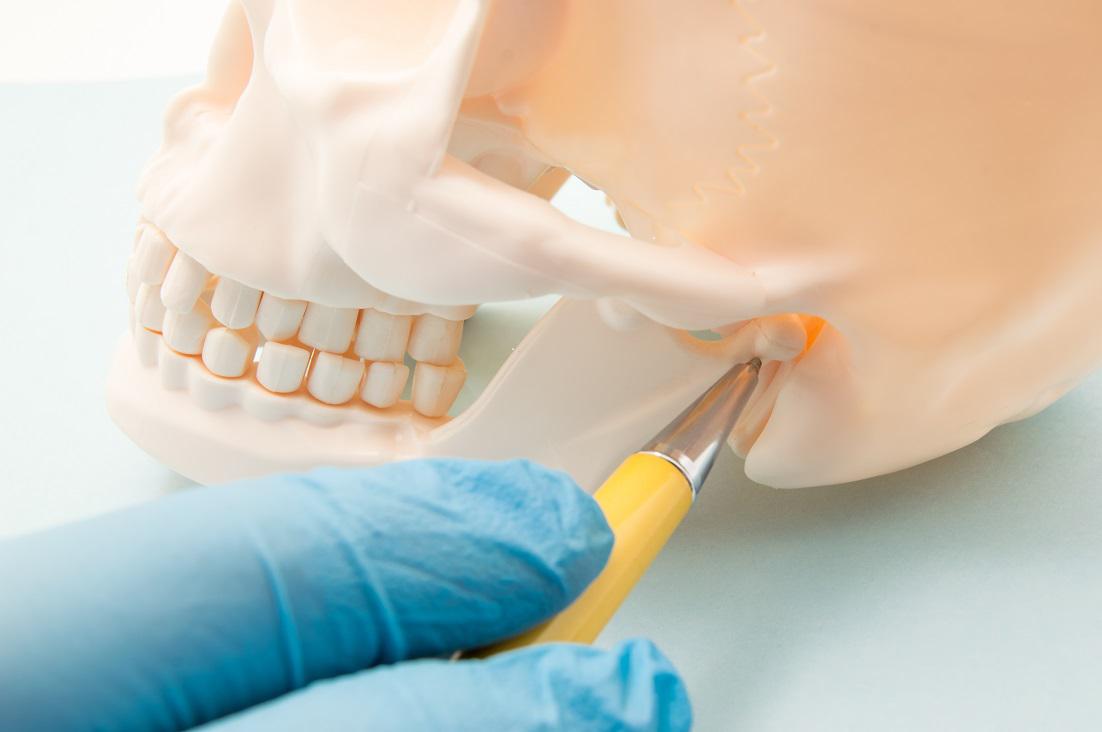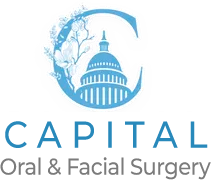TMJ Treatment - Washington D.C.
 The temporomandibular joint is the hinge-like area of your mouth where your jaw meets your skull. Misalignment or disease of this joint is known as temporomandibular joint dysfunction (TMJ) and can cause occlusion problems and other symptoms. Dr. Farzaneh Rostami is able to determine if you have TMJ disorder and can provide orthopedic treatments for the condition. With extensive training and some of the most advanced equipment in the industry, Dr. Rostami is recognized as a leading TMJ Doctor in Washington D.C.
The temporomandibular joint is the hinge-like area of your mouth where your jaw meets your skull. Misalignment or disease of this joint is known as temporomandibular joint dysfunction (TMJ) and can cause occlusion problems and other symptoms. Dr. Farzaneh Rostami is able to determine if you have TMJ disorder and can provide orthopedic treatments for the condition. With extensive training and some of the most advanced equipment in the industry, Dr. Rostami is recognized as a leading TMJ Doctor in Washington D.C.
TMJ Disorder
TMJ disorder, or temporomandibular joint disorder, is a condition that causes neck and facial pain and dysfunction in the jaw, jaw joints, and the facial muscles that control it.
Numerous things can cause TMJ disorder, including:
- Injury to the jaw, such as a fracture
- Arthritis in the jaw joint
- Clenching or teeth grinding (bruxism)
- Extreme stress that causes you to tighten your jaw muscles
TMJ Symptoms:
- TMJ pain
- Jaw, face, or neck pain
- Headaches
- Earaches
- Clicking or popping sounds with jaw movement
- Difficulty chewing
- Jaw locking
- Facial fatigue
Diagnosis & Treatment for TMJ Disorders
The first step in TMJ treatment is an accurate diagnosis. We perform a thorough mouth and jaw examination to determine the cause of your symptoms. Once we have made a diagnosis, we will develop a customized treatment plan to address your specific needs.
Nonsurgical Treatment
In many cases, treatment can be completed using nonsurgical methods, such as:
- Oral Appliances: An oral appliance, also known as a mouthguard, can be used to realign the jaw and relieve pressure on the TMJ.
- Dietary Changes: Certain foods, such as chewy or hard candy, can put additional strain on the TMJ. We may recommend changing your diet to avoid foods that trigger your symptoms.
- Muscle Relaxation Exercises: Stress can exacerbate TMJ disorder. We may suggest relaxation techniques or stress management counseling to help you minimize stress and ease your symptoms.
- Pain Medication: Over-the-counter or prescription pain medication may be used to relieve pain and inflammation associated with TMJ disorder.
- Injections: Corticosteroid injections can also be used to reduce inflammation and pain.
- Botox injections: These are useful in certain cases where there is high muscle tension such as in myofascial pain dysfunction syndrome( MPDS )
If nonsurgical methods are not effective, we may recommend surgery. Surgery for TMJ disorder is typically reserved for severe cases that have not responded to conservative treatment.
Surgical Treatment
The severity of your TMJ disorder will determine the type of surgery we perform. We may recommend one or more of the following procedures:
- Arthroscopy: Arthroscopy is a minimally invasive surgical procedure that can be used to help treat TMJ disorder. A small incision is made in the skin over the top of the joint, and a thin, flexible telescope (arthroscope) is inserted into the joint. The doctor can then clean out the joint, smooth rough surfaces, or remove debris.
- Open Joint Surgery: Open joint surgery is a surgical procedure that involves the removal of the damaged joint and replacement with an artificial joint. This surgery is typically reserved for more severe cases of TMJ disorder that have not responded to conservative treatment.
- Joint Replacement: Joint replacement involves completely removing the damaged joint and replacement with an artificial joint. This surgery is typically reserved as a last resort for more severe cases of TMJ disorder that have not responded to conservative treatments.
Learn More About Our Washington D.C. TMJ Treatment Options
If you reside in or the surrounding area and are suffering from persistent jaw pain or soreness, headaches, migraines, or bouts of lockjaw, we encourage you to schedule an appointment for an evaluation with our experienced dental team. We are able to provide non-surgical Washington D.C. TMJ and TMD solutions in many cases.

